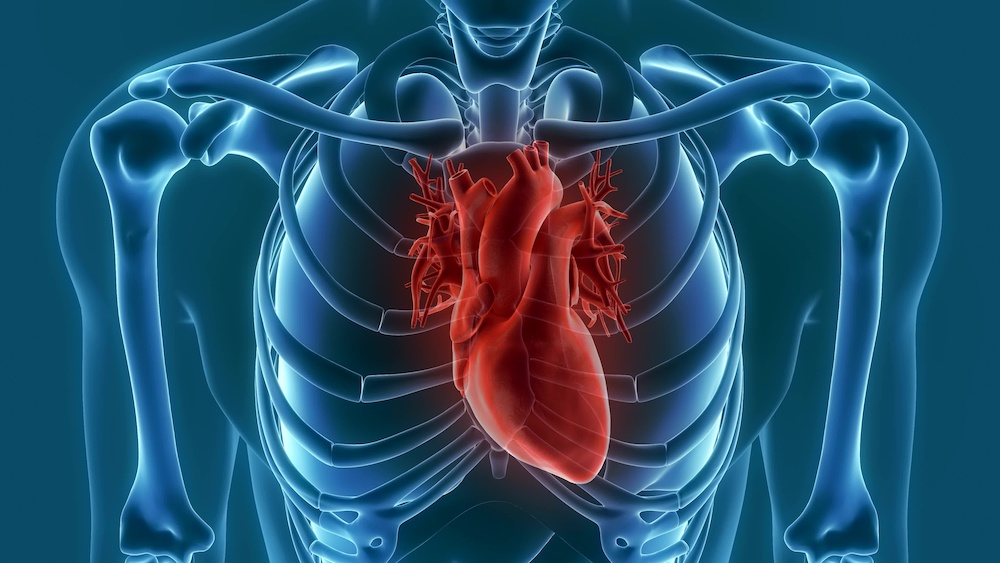What is Congestive Heart Failure and How is it Treated?

Heart failure, also known as congestive heart failure (CHF), is a heart disease state that covers any reason why the heart is not pumping blood efficiently. Chronic heart failure is a chronic condition that gets worse with time. The heart pumps blood throughout the body to meet the body’s demand for blood and oxygen.
During heart failure, the heart cannot pump as much blood throughout the body and tries to compensate for less blood by beating faster, enlarging, and withholding blood from less vital organs. When the body’s cells don’t receive enough blood, everyday activities can suddenly become very challenging and can result in extreme fatigue, shortness of breath, or coughing.
Common Causes of Congestive Heart Failure
Congestive Heart failure usually results from other conditions that weaken the heart muscle. Some of the more prevalent conditions causing heart failure include coronary artery disease (atherosclerosis), high blood pressure, and previous heart attacks. Other causes include faulty heart valves, cardiomyopathy (damage to the heart muscle), myocarditis (inflammation of the heart muscle), heart defects at birth, abnormal heart rhythms, and even other chronic diseases such as HIV, diabetes, or thyroid disorders. Lifestyle plays a big role in the risk of heart failure as well. Obesity, alcohol use, tobacco, and certain medications increase the risk of heart failure
Heart Failure Symptoms
Symptoms of Congestive Heart Failure Ranging from Mild to Severe
Congestive Heart failure symptoms present as a function of the heart disease severity, ranging from mild to severe cases. Mild symptoms of heart failure include dry, hacking coughs, worsening shortness of breath with activity, increased swelling of legs, feet, and ankles, sudden weight gain, discomfort or swelling in the abdomen, and a hard time falling asleep. Severe symptoms are escalated versions of these symptoms with the addition of possible dizziness, confusion, sadness or depression, loss of appetite, and an inability to lie flat
Measuring Congestive Heart Failure
A quantitative measure of heart muscle failure is the ejection fraction, the amount of blood pumped out of the left ventricle as a fraction of the amount of blood in the left ventricle. It measures how efficient the ventricle is at emptying itself and deploying blood to the rest of the body. Borderline ejection fractions have a value of 41-49%, where symptoms are noticeable during activity. Reduced ejection fractions are less than 40%, where symptoms may be noticeable during rest.
Tracking symptoms are very important to managing and improving the quality of life and the ejection fraction associated with congestive heart failure. Shortness of breath, heart rate, daily weight, swelling, blood pressure, and impaired thinking are all important symptoms to track when managing heart When managing heart muscle failure.
Prevent Congestive Heart Disease Through a Balanced Diet
Good lifestyle choices can prevent the onset of heart failure or help mitigate the symptoms for patients with chronic heart failure. Alcohol and tobacco use is a significant risk factor that results in arterial damage. Limiting this, including even secondhand smoke, goes a long way in avoiding congestive heart failure.
Prototypical heart-healthy foods and a balanced diet can supplement the limiting of vices. Some of these foods include lean protein (chicken and fish), fruits and vegetables, foods low in saturated fat, trans fat, sugar, and sodium, and good fats like olive oil, fish, and avocados.
Learn to manage your lifestyle to prevent heart failure
Managing and monitoring your weight through a good diet and regular exercise is critical for maintaining good heart health. Finally, in instances where individuals have conditions that weaken the heart, it is important that they adhere to their existing treatment program. Treating underlying risk factors such as high cholesterol and blood pressure has been shown to prevent heart problems such as attacks and coronary artery disease – two of the primary drivers of heart failure.
Congestive Heart Failure Treatment
Congestive Heart Failure Treatment for Heart Disease Patients Is Usually a Combination of Lifestyle Choice Changes and Prescribed Medication
Treatment for heart failure is usually a combination of lifestyle choice changes and a doctor’s prescribed medication. Medications are prescribed to a patient based on the type of heart muscle failure and severity. Common medications include
Types of Treatment for Congestive Heart Failure
Angiotensin-converting enzyme (ACE) inhibitors, Beta-blockers: (beta-blockers and ACE inhibitors are usually taken together to protect the heart and slow chronic heart failure progression), diuretics, and Mineralocorticoid/aldosterone receptor antagonists (MRAs) (diuretics and MRAs help with fluid retention). Individuals with heart failure find themselves on a variety of drugs to ensure that the heart muscle failure doesn’t worsen and prevent normal daily functioning
Cardiovascular Research & Training Institute
At the Nora Eccles Harrison Cardiovascular Research and Training Institute (CVRTI), researchers are interested in how cardiac muscle biology relates to the mechanistic basis of heart failure(HF). The CVRTI is committed to focusing on learning what drives heart muscle failure and how best to treat it. Researchers are working on changing the standard of care for HF patients through drug therapy, gene therapy and therapeutic devices. Specifically, CVRTI investigators are trying to understand how the failing heart can recover in order to improve outcomes for HF patients. Our investigators are focused on identifying cellular and molecular targets to develop new therapeutic tools for myocardial recovery.
They also evaluate myocardial ultrastructure, microstructure, and function in normal, diseased, and aged hearts. Preserving and optimizing the cellular cytoskeleton and the mitochondrial function in the failing heart are major research interests of our investigators. With these research programs in place, the CVRTI is committed to improve how acute and chronic heart failure patients are diagnosed and treated.


